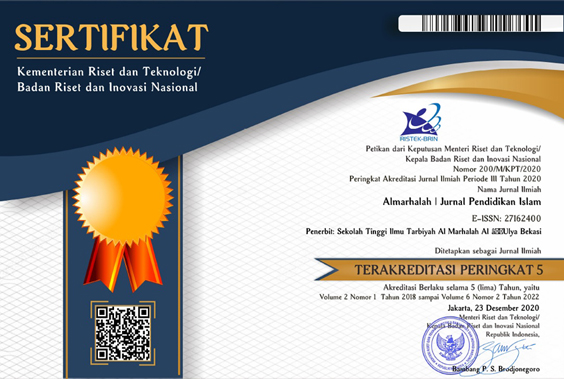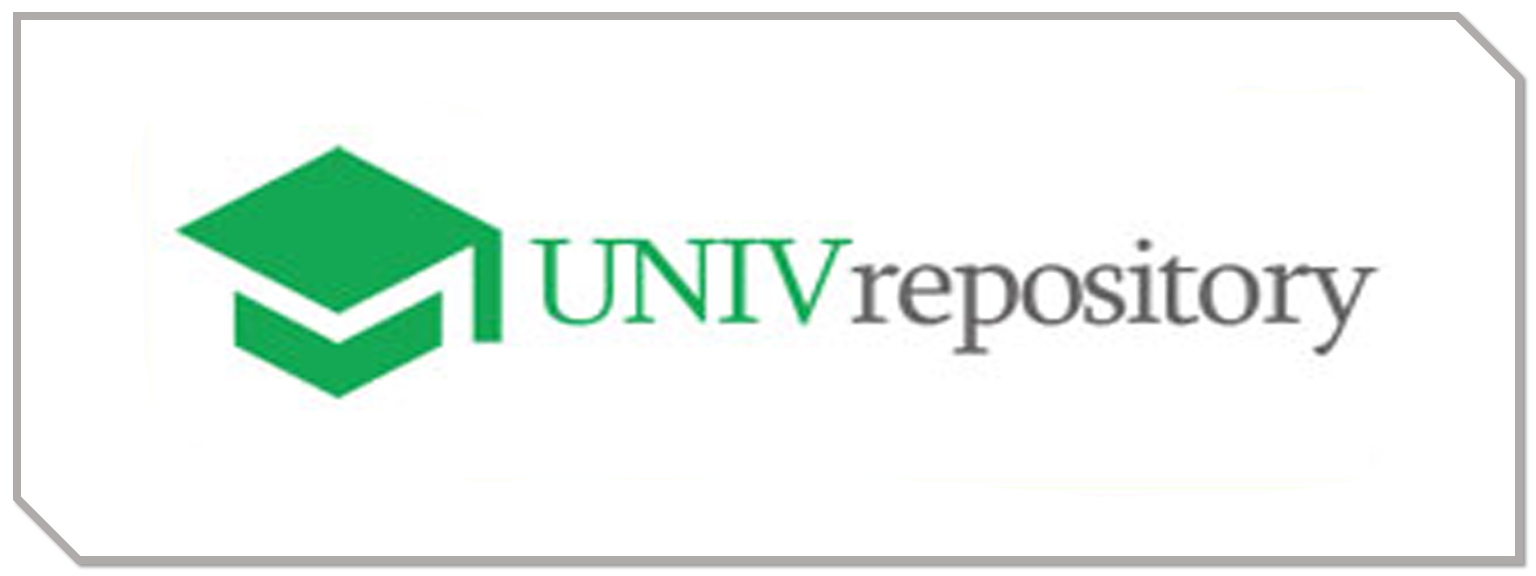MENINGKATAN ETOS KERJA BERBASIS RELIGIUSITAS PEKERJA PABRIK DI KAWASAN INDUSTRI (STUDI KASUS DI LPKS MYNARA CIKARANG)
DOI:
https://doi.org/10.38153/almarhalah.v8i1.14Keywords:
Religiosity, , Work Ethic, , Factory WorkersAbstract
ABSTRACK
This research aims to gain a deep understanding of the role of religiosity in shaping the work ethic of factory workers in LPKS Mynara Cikarang. In this research approach, a qualitative method was employed, focusing on data collection through in-depth interviews and participatory observation. The research respondents consisted of factory workers at LPKS Mynara Cikarang with diverse work experiences. The findings of this research depict religiosity not only as a series of religious rituals but also as a profound awareness that permeates moral values and personal engagement with God. These religious values provide a strong moral foundation, creating a work culture based on a moral calling rather than tasks as mere obligations. Religious practices, such as prayer and self-reflection, are not just rituals but also psychological strategies that positively impact the psychological well-being of workers. The research also highlights the challenges and opportunities in enhancing the work ethic of factory workers. Training and skills development are recognized as strategic pillars, while leadership roles that set positive examples and engage in open communication are identified as keys to motivating workers. However, high levels of stress and workload can hinder productivity, indicating the need for management policies that support employee well-being. Adaptation to technological changes is also crucial, requiring relevant training and effective communication. Overall, these findings provide a foundation for companies to develop holistic strategies that incorporate training, leadership, stress management, and technological adaptation to sustainably enhance the work ethic of factory workers.
References
DAFTAR PUSTAKA
Aguilika, Deykha. 2023. “Etika Bisnis Syariah.”
Akbar, Firman Muhammad Abdurrohman, Erika Amelia, and Ahmad Rodoni. 2023. “ANALISIS KEBIJAKAN EKONOMI SYARIAH ZAMAN RASULULLAH SAW BERDASARKAN PERSPEKTIF HUKUM EKONOMI ISLAM.” Ar Rasyiid Journal of Islamic Studies 1(1): 1–12.
Dariyanto, D, Nabil, N. (2022) Human Language Acquisition Al-Qurán Perspective. Almarhalah| Jurnal Pendidikan Islam, 20(2), 235-244.
Fahruddin, Mukhlis. 2023. Pola Pendidikan Karakter Religius Melalui Islamic Boarding School Di Indonesia. Pustaka Peradaban.
Haris, Abdul Haris. 2017. “Pendidikan Karakter Dalam Perspektif Islam.” Al-Munawwarah: Jurnal Pendidikan Islam 9(1): 64–82.
Julyanthry, Julyanthry et al. 2020. “Manajemen Produksi Dan Operasi.”
Makhmudah, Siti. 2019. Medsos Dan Dampaknya Pada Perilaku Keagamaan Remaja. Guepedia.
Nirwana, Andri. 2020. “Konsep Pendidikan Psikologi Religiusitas Remaja Muslim Dalam Motivasi Beragama.” AT-TA’DIB: Jurnal Ilmiah Prodi Pendidikan Agama Islam: 71–88.
Nabil, N. (2020). Dinamika Guru Dalam Menghadapi Media Pembelajaran Teknologi Informasi Dan Komunikasi. Almarhalah| Jurnal Pendidikan Islam, 4(1), 51-62.
Suryadi, Bambang, and Bahrul Hayat. 2021. Religiusitas Konsep, Pengukuran, Dan Implementasi Di Indonesia. Bibliosmia Karya Indonesia.
Syah, Amirul. 2021. Etos Kerja Dan Kepemimpinan Islam. CV. AZKA PUSTAKA.
Syofiyanti, Dessy et al. 2021. Teori Psikologi Agama. Yayasan Penerbit Muhammad Zaini.
Tsauri, Sofyan. 2014. “Manajemen Kinerja Performance Management.”
Ulfatin, Nurul. 2022. Metode Penelitian Kualitatif Di Bidang Pendidikan: Teori Dan Aplikasinya. Media Nusa Creative (MNC Publishing).
Downloads
Published
Issue
Section
License
Copyright (c) 2024 Almarhalah

This work is licensed under a Creative Commons Attribution-NonCommercial-ShareAlike 4.0 International License.









